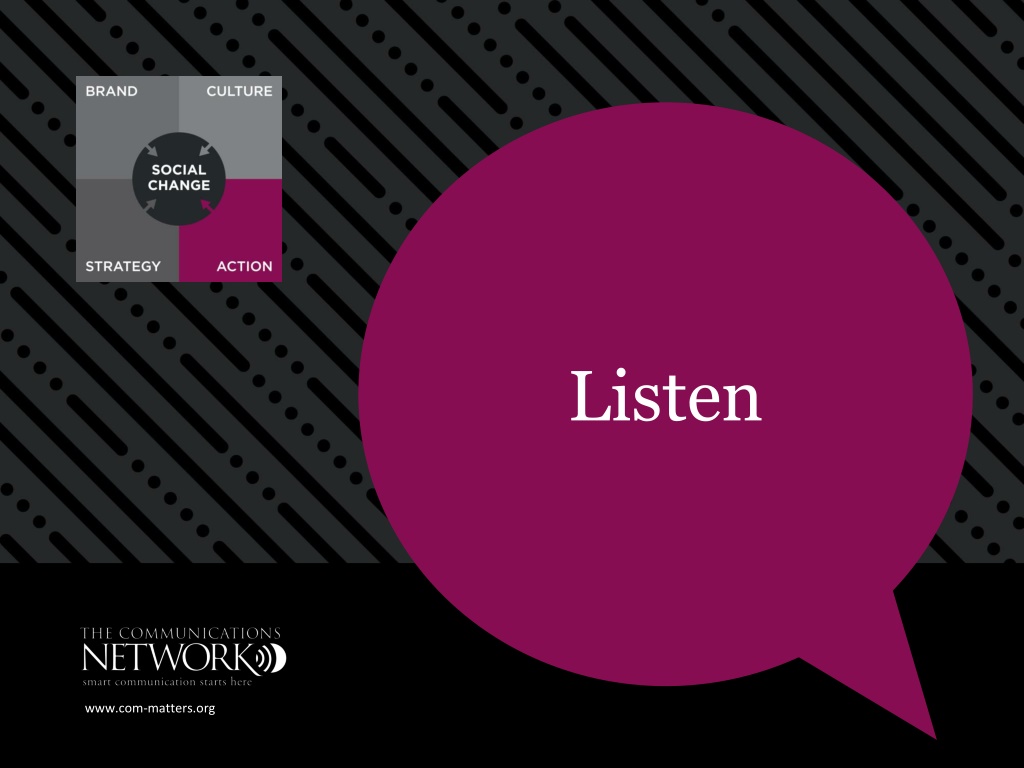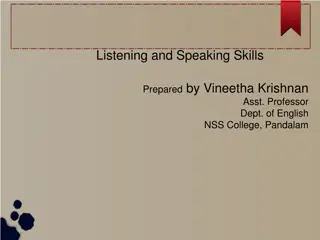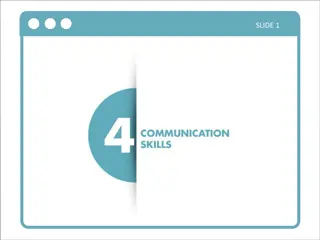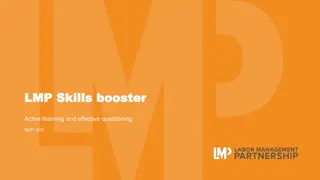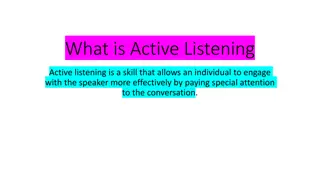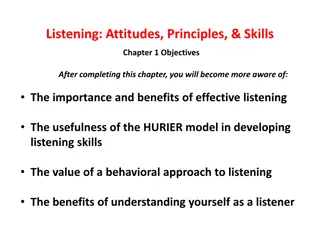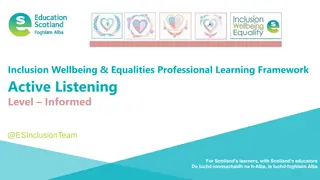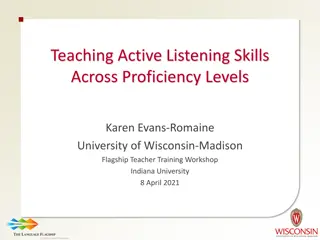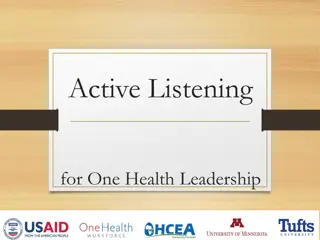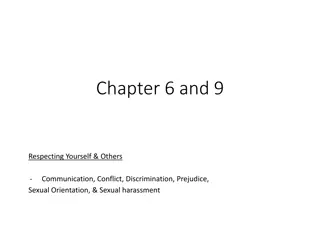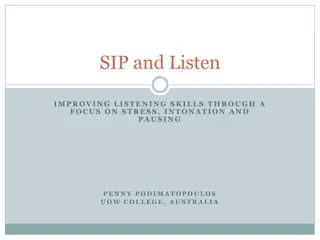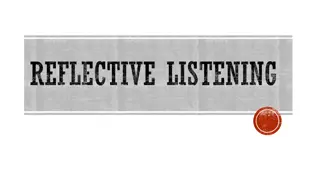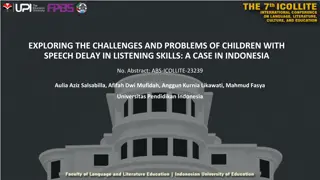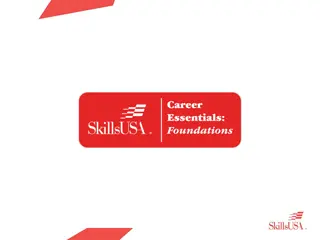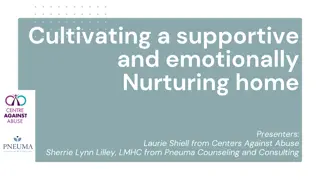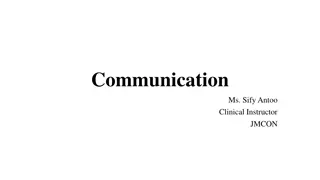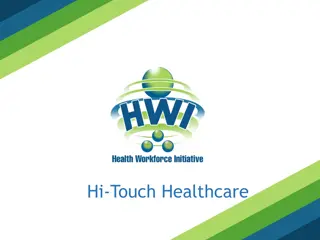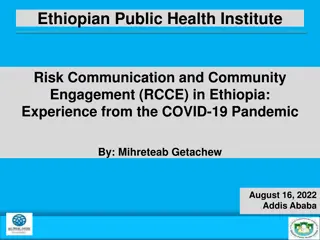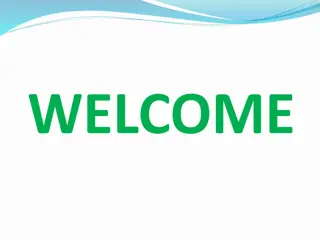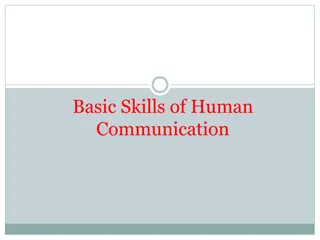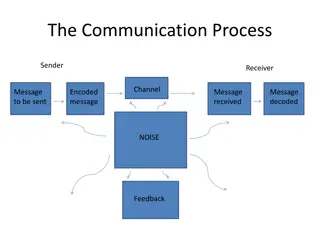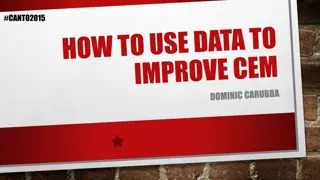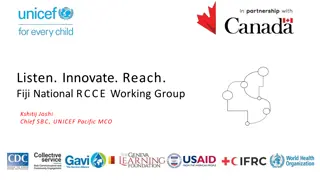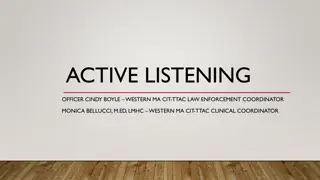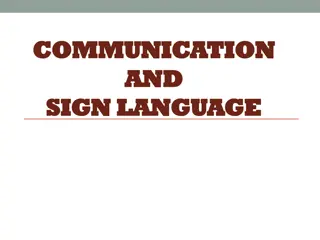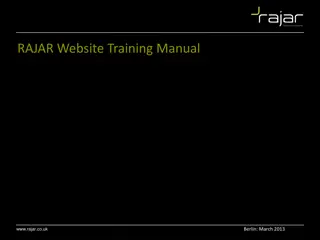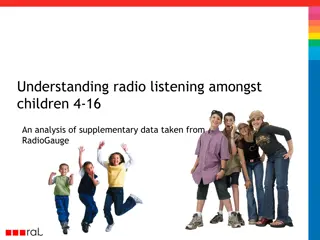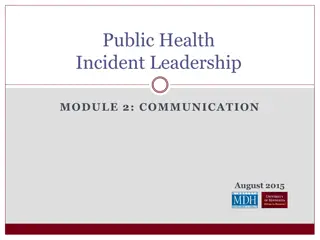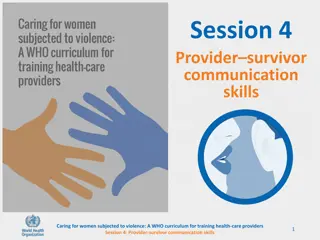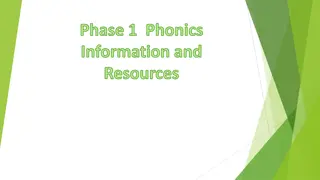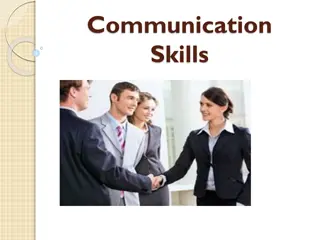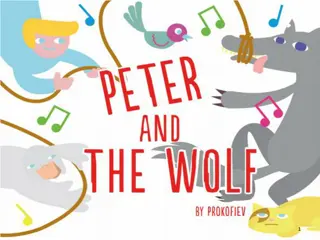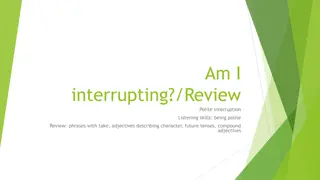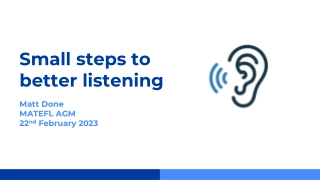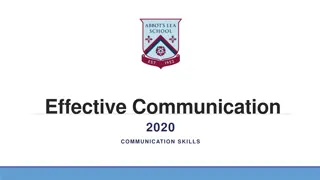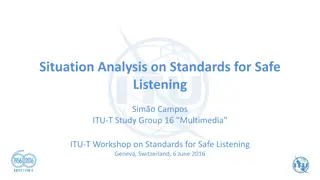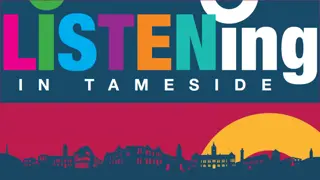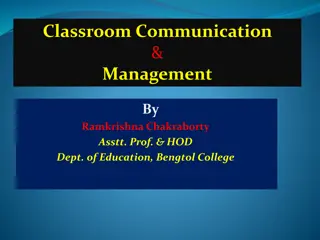Listening and Communication Insights: The Power of Effective Engagement
Effective communication is a pivotal component in fostering understanding, learning, and sharing in various contexts, from nonprofit leadership challenges to the importance of listening skills in organizations. This content emphasizes the significance of active listening, highlighting statistics such as the daily exposure to marketing messages and the average listener's word comprehension rate. It underscores the necessity for strategic communication to shift dominant narratives and drive social change initiatives successfully. The narrative explores the challenges of persistence in philanthropy and advocates for prioritizing communication to achieve long-term impact.
Uploaded on Sep 22, 2024 | 0 Views
Download Presentation

Please find below an Image/Link to download the presentation.
The content on the website is provided AS IS for your information and personal use only. It may not be sold, licensed, or shared on other websites without obtaining consent from the author. Download presentation by click this link. If you encounter any issues during the download, it is possible that the publisher has removed the file from their server.
E N D
Presentation Transcript
Listen Listen www.com-matters.org www.com-matters.org www.com-matters.org
Listen Communicating is an active process made up of three continuous and mutually reinforcing actions. It starts with listening, but involves equal parts learning and sharing. Doing all three well requires intentionality, focus and time. Good listeners listen to understand, not to respond Listening can take many forms: paying attention to news cycles, participating actively in social media, running regular focus groups or opinion polls, and more. www.com-matters.org Listening also takes time. It is not something you do once, or once a year. www.com-matters.org
Listen Listen 74% Percentage of nonprofit leaders who named fundraising as a challenge to their personal and professional effectiveness in the Meyer Foundation s Executive Director Listening Project. www.com-matters.org www.com-matters.org www.com-matters.org
Listen Listen 1 Organizations' rank of the importance of communication and listening skills compared to other skills. www.com-matters.org www.com-matters.org www.com-matters.org
Listen Listen 3000 The number of marketing messages an average American is exposed to each day. www.com-matters.org www.com-matters.org www.com-matters.org
Listen Listen 125-250 The number of words per minute the average listener is capable of hearing. By contrast, we think at 1000 to 3000 words per minute. www.com-matters.org www.com-matters.org www.com-matters.org
Listen So many of the issues we work on are stuck because the dominant narrative is wrong, and that doesn't change just by doing good grantmaking that gets results. To leverage those results, to create new narratives, takes strategic communication. COMMUNICATION LEADER Private Foundation www.com-matters.org www.com-matters.org
Listen Persistence is a problem in the philanthropy world. For all the talk about we re in it for the long haul, there s a certain amount of impatience in philanthropy. EXECUTIVE LEADER Private Foundation www.com-matters.org www.com-matters.org
Listen Tell me one major, successful social change initiative that did not have very strong communications as part of its success. COMMUNICATION LEADER Private Foundation www.com-matters.org www.com-matters.org
Listen What intentional, consistent methods for listening do you use? www.com-matters.org www.com-matters.org
Listen What tools do you utilize for monitoring your message? www.com-matters.org www.com-matters.org
Listen What listening tools can you build into your communication actions? www.com-matters.org www.com-matters.org
Learn Learn www.com-matters.org www.com-matters.org www.com-matters.org
Learn Communicating is an active process comprised of three dynamic and mutually reinforcing actions. Learning follows listening, but is equally important. Both listening and learning are prerequisites for sharing. Learning is about internalizing what you hear and engaging in true self-reflection before proceeding with any outbound message There is much to be learned from internal audiences your colleagues, peers, and partners can shed insight that external audiences cannot. www.com-matters.org Learning also takes time lots and lots of time. www.com-matters.org
Learn Learn 73% Percentage of survey respondents who wish they had more data to prove that communication investments are worth making. www.com-matters.org www.com-matters.org www.com-matters.org
Learn Learn 44% Percentage of survey respondents who say their organization always or often communicates to share learning about what has and has not worked. www.com-matters.org www.com-matters.org www.com-matters.org
Learn Learn 44 Number of years it took to go from one state where marriage is legal for all couples, to 19. www.com-matters.org www.com-matters.org www.com-matters.org
Learn Improving an organization's communications capacity can create organizational cohesion, concentrate focus, and reinforce shared values. PROGRAM LEADER Private Foundation www.com-matters.org www.com-matters.org
Learn "Communication moves at a fast pace. The foundation world does not. And so opportunities are missed. COMMUNICATION LEADER Private Foundation www.com-matters.org www.com-matters.org
Learn There is a dynamic tension between communication and programs. Communication feels that what program wants to say is too boring, wonky, complex. Program feels communication is stretching the truth by trying to simplify. COMMUNICATION LEADER Nonprofit www.com-matters.org www.com-matters.org
Learn How do you learn from internal and external audiences? www.com-matters.org www.com-matters.org
Learn What do you do to encourage self-reflection? www.com-matters.org www.com-matters.org
Learn Are you receptive to what your audience can teach you? www.com-matters.org www.com-matters.org
Share Share www.com-matters.org www.com-matters.org www.com-matters.org
Share Communicating is an active process made up of three continuous and mutually reinforcing actions. Sharing, the final step in a virtuous circle, rarely succeeds fully until you have listened and learned first. Sharing is the active dissemination stage where your messages are delivered to, and received by, your key audiences. Sharing assumes many forms, channels, and routes, nearly all of which require the communicator to ultimately cede control of the message. www.com-matters.org Active, effective communication unfolds slowly, even when it is done masterfully. www.com-matters.org
Share Share 1 in 10 Ratio of Americans who can give an example of a foundation s impact on an issue they care about. www.com-matters.org www.com-matters.org www.com-matters.org
Share Share 8 in 10 Ratio of Americans who think it would be a loss for their community if foundations no longer existed. www.com-matters.org www.com-matters.org www.com-matters.org
Share Share 65% Percentage of millennials who receive regular email or newsletters from 1 to 5 nonprofits. www.com-matters.org www.com-matters.org www.com-matters.org
Share Strategic communications raises the visibility of the issues we address, shines the light on organizations and leaders we value, and leverages the grant making investments made by the foundation. PROGRAM LEADER Private Foundation www.com-matters.org www.com-matters.org
Share If people we wish to impact don't understand the issue, what we are trying to change, or how it effects the society in which we live, we will never achieve lasting change. COMMUNICATION LEADER Private Foundation www.com-matters.org www.com-matters.org
Share We re dealing with policy makers who have limited knowledge about foundations. Many don t know what a foundation is or does, and that s our fault, not theirs. EXECUTIVE LEADER Private Foundation www.com-matters.org www.com-matters.org
Share Are you listening and learning before sharing? www.com-matters.org www.com-matters.org
Share What do you do to calibrate your content? www.com-matters.org www.com-matters.org
Share How do you deal with messages that fail? www.com-matters.org www.com-matters.org
